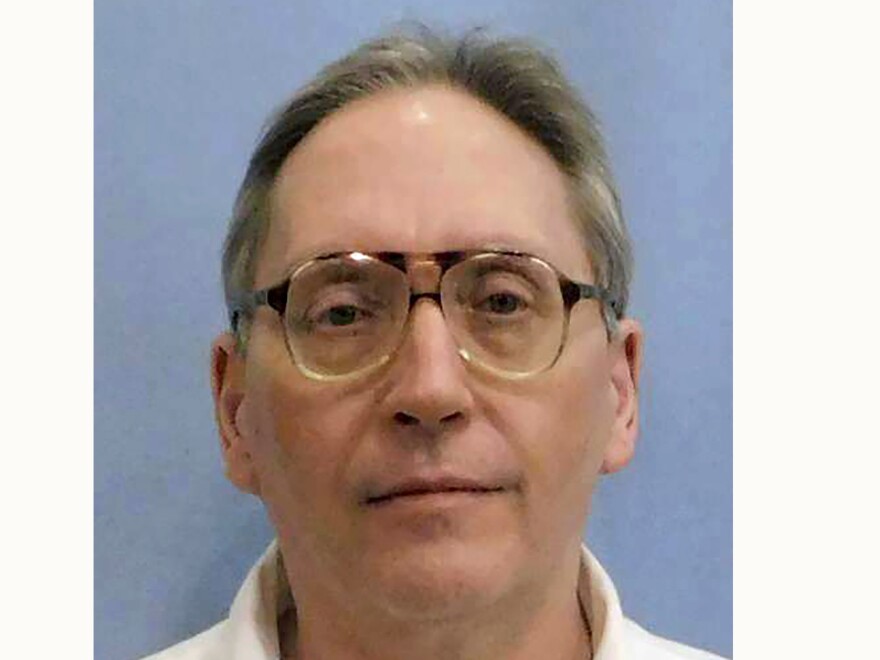ATMORE, Ala. — Alabama executed a man on Friday for the 2001 beating death of a woman as the state resumed lethal injections after two failed executions prompted the state to conduct an internal review.
James Barber, 64, was pronounced dead at 1:56 a.m. after receiving a lethal injection at a south Alabama prison.
Barber was convicted and sentenced to death for the 2001 beating death of 75-year-old Dorothy Epps. Prosecutors said Barber, a handyman, confessed to killing Epps with a claw hammer and fleeing with her purse. Jurors voted 11-1 to recommend a death sentence, which a judge imposed.
Before he was put to death, Barber told his family he loved them and apologized to Epps' family.
"I want to tell the Epps' family I love them. I'm sorry for what happened," Barber said. "No words would fit how I feel."
Barber said he wanted to tell the governor "and the people in this room that I forgive you for what you are about to do."
It was the first execution carried out in Alabama this year after the state halted executions last fall. Alabama Gov. Kay Ivey announced a pause on executions in November to conduct an internal review of procedures.
The move came after the state halted two lethal injections because of difficulties inserting IVs into the condemned men's veins. Advocacy groups claimed a third execution, carried out after a delay because of IV problems, was botched, a claim the state has disputed.
Barber's attorneys unsuccessfully asked the courts to block the execution, saying the state has a pattern of failing "to carry out a lethal injection execution in a constitutional manner."
The Supreme Court denied Barber's request for a stay without comment. Justice Sonia Sotomayor wrote a dissent from the decision that was joined by Justice Elena Kagan and Justice Ketanji Brown Jackson. She said the court was allowing "Alabama to experiment again with a human life."
"The Eighth Amendment demands more than the State's word that this time will be different. The Court should not allow Alabama to test the efficacy of its internal review by using Barber as its 'guinea pig,'" Sotomayor wrote.
After his last words, Barber spoke with a spiritual adviser who accompanied him into the death chamber. As the drugs were administered, Barber's eyes closed and his abdomen pulsed several times. His breathing slowed until it was no longer visible.
Much of of the last-minute legal battle centered on Alabama's ability to obtain intravenous access in past executions. Alabama Corrections Commissioner John Hamm said the two intravenous lines were connected to Barber with "three sticks in six minutes."
"Justice has been served. This morning, James Barber was put to death for the terrible crime he committed over two decades ago: the especially heinous, atrocious, and cruel murder of Dorothy Epps," Attorney General Steve Marshall said in a statement.
Copyright 2023 NPR. To see more, visit https://www.npr.org.




